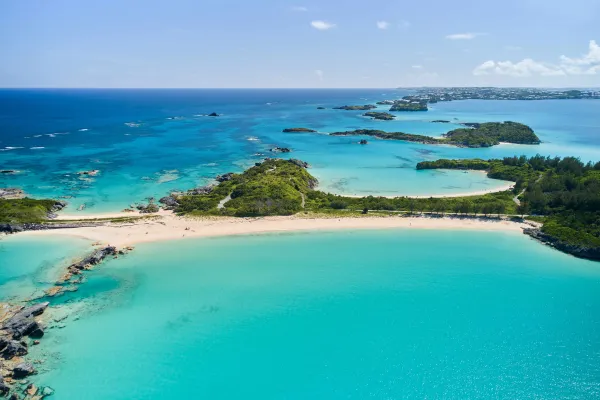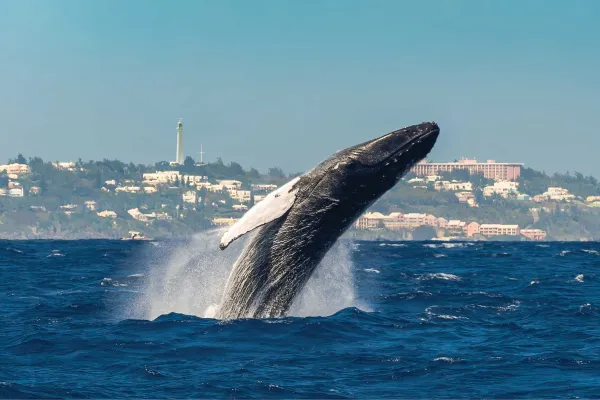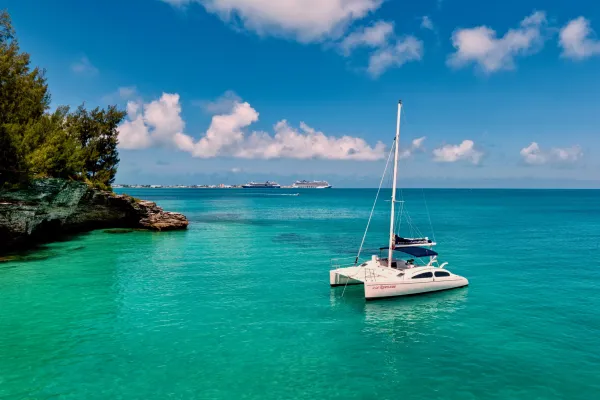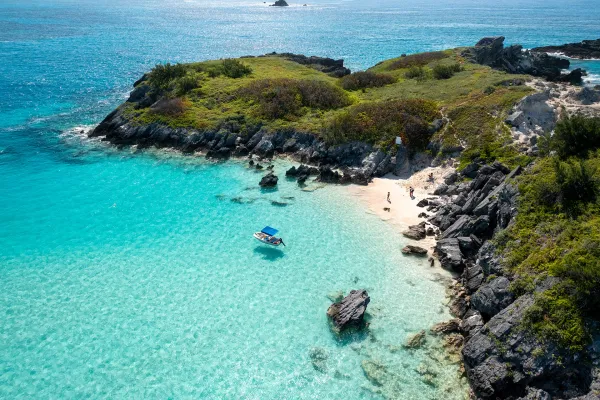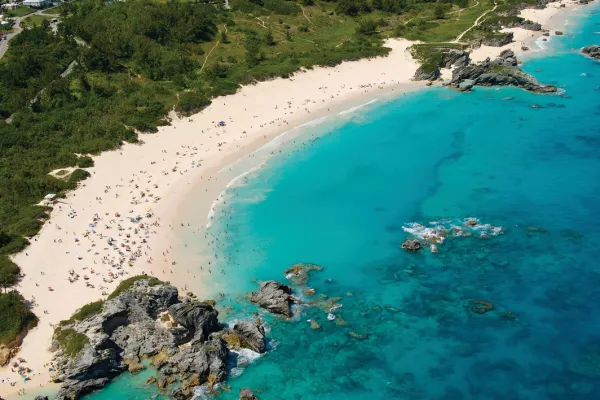Explore comfortably, all year round.
Bermuda's sub-tropical climate and gentle trade winds create a perfect environment for world-class sailing, lush parks, and pristine golf courses. While the island is known for its beautiful weather, it can sometimes be as varied as its landscapes. You might find a brief shower passing through the West End while sunbathers on the East End remain in full sunshine – don’t worry, you’ll be back enjoying our great outdoors in no time.
Bermuda Weather by Season
Fall
Experience an endless summer in Bermuda, where fall season carries on with warm weather ideal for on-the-water adventures and outdoor sports, from golf to pickleball. Plus, spiny lobster season is back in action.
Winter
During winter, Bermuda offers sun-splashed days where you can enjoy a perfect mix of nature and culture. It’s prime time for exploring natural wonders, indulging in local flavours, and soaking up local art.
Spring
The weather is warming and flowers are blooming. Tree frogs are singing and whales can be spotted from shore. Spring is a great time to partake in festive traditions, outdoor adventures, and on-the-water fun.
Summer
Summer in Bermuda was made for beach days, big events, and culture-infused nights. After relaxing on pink-sand shores, you can experience a spirited cricket match or celebrate at an electrifying festival.

What to Pack
Get ideas for what to wear in every season, day and night, so you’re comfortable and in sync with Bermuda’s island style. See the vibe in a mix of settings, from the beach to high-end restaurants.

Climate & Weather
Frequently Asked Questions
Big hits are rare in Bermuda, averaging just over one per decade. The Atlantic hurricane season officially runs June 1 through November 30. Four important things to know:
• Most hotels have “hurricane guarantees” that provide refunds or future complimentary stays.
• The island usually gets plenty of advance notice of an approaching storm.
• The emergency services are very well-versed in storm preparation.
• Bermuda’s stone buildings are incredibly strong and many have withstood hurricanes for centuries.
Most storms that do get close (within 100 nautical miles) show in two months: September & October.
For more information and detailed forecasts, visit the Bermuda Weather Service website or AccuWeather.com.
Bermuda is an alluring destination any time of year, but there are some distinct differences based on weather, water temperatures, and special seasons, such as spiny lobster season. To find your ideal time, see Bermuda Weather by Month.
Yes, Bermuda is located within what is known as the "Hurricane Alley" of the North Atlantic, but it's infrequent that a major storm makes direct landfall (in fact, only 12 storms have made landfall since 1850). Bermuda’s steep, hilly geography, rising from the ocean’s deep waters, helps minimise the impact of storm surges, and the surrounding coral reefs and rocky shores act as natural barriers and help reduce storm surge.
Direct landfall hits to Bermuda are infrequent, thanks to the island’s more northern positioning.
Bermuda’s resiliency to hurricanes dates back to 1712 when a storm caused significant damage to a number of buildings on the island. In response, Bermuda changed its building laws requiring walls and roofs to be constructed from stone instead of wood. Since then, Bermuda homes have been built with thick limestone walls and heavy stone roofs, designed to withstand hurricane-force winds and minimize damage.
The heavy, stepped limestone roofs are not only hurricane-resistant but also collect rainwater, which is critical to maintaining fresh water supplies in the event that there is major damage to infrastructure on the island.

